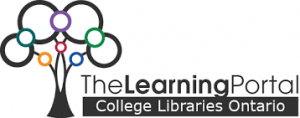Quick Wins From Colleagues Across the Province
The next three examples highlight supplementary resources, developed by your colleagues, that you can use right now to remediate common course hurdles for your learners (and even common course learning outcomes!).
Developed with funding from eCampusOntario, we have chosen aspects of the resources that respond to current challenges, but feel free to explore the resources in their entirety for even greater support.
Three universities, Guelph, Waterloo, and Laurier, collaborated to build a step-by-step resource guiding learners through the most popular genres of academic writing. Whether your course focus is case studies, lab reports, literature reviews, and | or reflective writing, there is material to assist. Each or the four standalone guides showcases the necessary steps to complete a high-quality writing product in any of the genres.
Learners can also access the direct assistance they require through the highly modularized content. They can dip in to refresh their understanding of crucial features or review tips for revising work. Each genre also includes templates to assist with planning and research.

This collaboration among Ontario college libraries, several of their learning centres, and the Ontario Colleges Library Services (OCLS), “aims to provide easy and equitable access to open learning resources and services to Ontario’s online college students and to provide a consistent, province-wide academic support platform for faculty to use for course and assignment design”.
Currently, the learning portal addresses five, often confusing, areas at the intersection of technology and education: Study Skills, Research, Writing, Digital Literacies, and Digital Citizenship. Curation by your colleagues guarantees the resources are of the highest quality and target the specific situations of post-secondary learners. Here’s a closer look at one of the hubs.
“Digital Citizenship” assists learners’ understanding of nine current concerns of today such as, fake news, privacy, and technology’s impact on physical and mental health. Through tips, links, videos, self assessments, and quizzes learners grow their understanding of these key topics, learn tips to optimize their opportunities, and become aware of potential pitfalls. Link your learners to the entire hub, one of its nodes, or add the links to your own course content. Boost the impact of these resources by using the “Faculty Toolkit” with its tips and hints on connecting to specific assignments and assessments.

Foundations of Community Engagement
Western University’s Experiential Learning team combined their expertise with internships and co-ops to establish CompleteStudent.ca, open access co-curricular education. As of Summer 2017, there are three offerings targeting Learning Skills, Community Engagement, and Career Fundamentals. Here, we highlight Community Engagement and its three modules connecting learners to their communities and considering how those communities might influence their academic learning and personal development. However, you are encouraged to explore how any or all the offerings could support your teaching and learning goals.
Clear learning outcomes for each of the three modules under Community Engagement articulate how you might connect and inject these mini-modules into your course content. In their interactive Storyline format, learners choose scenarios and complete shareable action plans. With embedded assessments and “choose your own adventure” options, learners propose actions and learn the actual repercussions of their chosen paths as they deconstruct power and privilege, and build community partnerships after having laid a foundation of understanding community and its interconnections.
They are designed for reuse by Ontario colleges and universities, who are encouraged to align them to their own co-curricular record activities.



Feedback/Errata